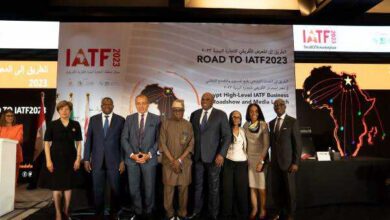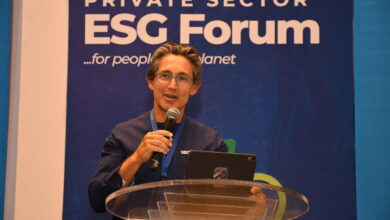Africa not for sale, activists warn

By EDDY AKPOR
- Caution privatisation agents at World Water Day
CIVIL society groups, labor, and community activists have described attempts by agents of privatisation to commodify the essential liquid in Africa, as the biggest impediment to universal access to potable water on the continent.
They spoke under the auspices of Our Water Our Right Africa Coalition (OWORAC) which comprises activists from Cameroon, Gabon, Ghana, Kenya, Mozambique, Nigeria, Senegal, and Uganda, among other countries on the continent facing threats of privatisation and working collaboratively to resist what they described as “the new colonialism.”
In a statement issued by Director of Programmes, Corporate Accountability and Public Participation Africa (CAPPA), Philip Jakpor, on the sidelines of the World Water Day (WWD), the coalition countered false ‘solutions’ espoused by the corporate-backed 2022 World Water Forum (WWF) holding in Dakar, Senegal, where multinational Suez’s large-scale water privatisation scheme is failing communities and workers. OWORAC and other activists participating in the Alternative WWF recognise that the struggle for water is an intersectional, internationalist struggle that needs a solid anti-capitalist, people-centered and feminist orientation.
They are also calling on governments and public representatives to stop using the neoliberal full cost-recovery model for water services and to break ties with companies seeking to make profits out of water and to put water under democratic systems and institutions. Well-funded and publicly accountable public water systems are the best way to ensure availability, accessibility and affordability of safe water service, The Trumpet gathered.
In 2021 the OWORAC exposed private water multinationals like Veolia and Suez’s aggressive push, backed up by international financial institutions and enabling governments, to take over Africa’s water systems with the sole purpose of profiteering without recourse to water as a human right.
Read Also: Suspected kidnappers rescued from jungle justice by police
A publication of the coalition, titled: Africa Must Rise and Resist Water Privatisation, released during the Africa Week of Action Against Water Privatisation from October 10, 2021 to October 15, 2021, insisted that privatisation of the water sector and those backed by the World Bank continue to threaten lives, livelihoods, food security, culture, health, education and the integrity of natural environments in Africa.
Privatisation will make it impossible for the conti- nent to meet the Strategic Development Goal 6, which advocates for availability and sustainable management of water and sanitation for all by year 2030. OWORAC identified various examples of failed water privatisation projects globally on the continent and throughout the world, pointing out that the parading of privatisation of water, as solution to the problem of water availability in Africa, poses grave danger to universal access. Example of the failure in Cameroon, where the government pulled out of failed privatisation arrangement.
Unfortunately, the same government is now considering embarking on another doomed privatisation arrangement under the guise of lack of public financing for the water utility company “In Gabon, a World Bank-backed privatisation was marred by consistent failures, including poor service and even a typhoid outbreak in the capital city.
When the government ended the privatisation arrangement with multinational Veolia, the corporation took it to international arbitration, with the state ultimately paying tens of millions of Euros in a settlement.
Now, the government is exploring re-privatisation of the sector.” After ending a long-term urban water privatisation scheme that did not meet the expectations of the population, the Mozambique cabinet approved a wide-sweeping privatisation scheme in 2021 that would cover 19 large urban areas of that country. Mozambi- can civil society opposed corporate capture of the water sector.
Nigerian OWORAC activists also continue to resist the World Bankpromoted ‘Public Private Partnership (PPP) model of water privatisation in the country, sometimes referred to as the more innocent sounding, but equally insidious “private sector participation.”
Threat of water privatisation also looms in Ghana, Kenya, Senegal and Uganda. Speaking on the sidelines of the WWD, Executive Director of CAPPA, Akinbode Oluwafemi, said: “In the spirit of the WWD, it is imperative for African governments to be on the watch and refuse to be used to jeopardise the rights of their citizens to satisfy the greed of the water behemoths.
“As private water executives and financiers descend on the continent for the WWF, we are reminded of the legacies of colonialism inherent in the current world order. This is not 1884 and Africa is not for sale.”
He also challenged governments across Africa to look inward to make the public water sector effective. Comrade Sani Baba of PSI said: “Privatisation is fast becoming the new colonial- ism on the African soil, and the gathering of corporate elites and privatisers on the African soil, in Senegal this year again is telling. Now, more than ever before, is when Africans must rise and resist the neo-colonialism, which commodification of water represents.”
This year’s World Water Day with the theme: Ground- water: Making The Invis- ible Visible, reinforces the importance of groundwater, which is an important part of climate change adaptation process and often a solution for people without access to safe formal water services.




